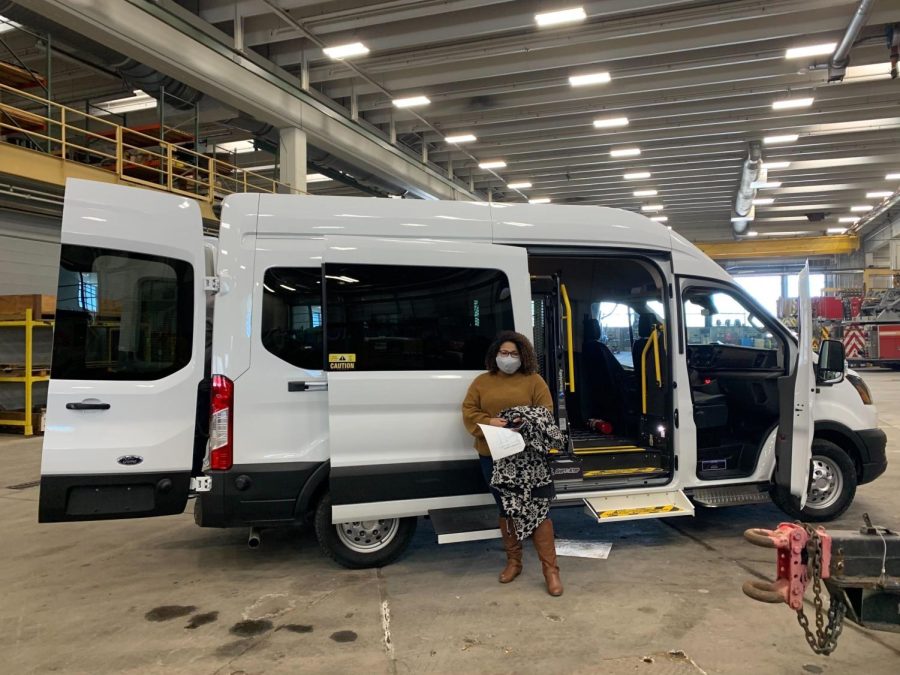Minneapolis City Council passed the final round of spending from the American Rescue Plan Act (ARPA) on May 26, dedicating $160,000 for two new vans for the city’s Behavioral Health Crisis Response team (BCR) pilot program.
The funding was not part of the mayor’s original $43 million proposal but was brought forward by Ward 1 city council member Elliott Payne and Ward 11 city council member Emily Koski on May 18. The council unanimously approved the motion and moved the funding from the proposed $1 million for the Minneapolis Police Department.
The Biden administration’s American Rescue Plan Act is a $1.9 trillion spending package designed to facilitate recovery from the COVID-19 pandemic. Minneapolis received $271 million to be spent in two phases on projects meant to aid that recovery.
The BCR program was launched in December 2021 to offer an unarmed response to nonviolent 911 calls. Some Minneapolis citizens called for public safety reform after high profile police killings such as when Derek Chauvin killed George Floyd in May 2020.
Mental health responders from Canopy Mental Health and Consulting intervene in cases of mental or behavioral health crises, offering support such as counseling and referrals to outside organizations.
The team currently uses two borrowed vans to respond to calls across the city. The city ordered new vans last summer but still has not received them due to material shortages, Payne said. He said the vans are old and in risk of breaking down, and the city does not have backup transportation available.
Canopy has not yet hired staff to cover shifts in the new vans, but the ARPA funding will be used “as soon as possible” to order them as it is uncertain when they and the previously ordered vans will arrive, Payne said.
“Who knows what the supply chain is going to look like a year from now,” Payne said. “It could be better but I’m passionate enough about the mental health response to want us to get that purchase order in as soon as possible.”
Payne said he expects additional staff for the BCR will be funded in the city’s budget for 2023, which is expected to be announced mid-August by Mayor Jacob Frey.
The BCR responds to calls 24 hours a day Monday through Friday, and now on day shifts for weekends. The MPD responds to calls when the BCR is off duty.
During a Public Health and Safety Committee meeting on April 20, data on the program collected between December 2021 and March was presented to committee members. Within that time frame, the BCR responded to over 1,650 calls, averaging about 100 per week.
According to a graph from the city of Minneapolis, the BCR responded to between 50-100 calls in each of the Marcy-Holmes and Cedar-Riverside neighborhoods, between 20-50 calls in the Prospect Park and Como neighborhoods and between 10-20 calls on the University of Minnesota campus.
At the meeting, mental health responders for the BCR testified about their interactions with community members. Ward 2 council member Robin Wonsley Worlobah said hearing responders’ experiences gaining the trust of those they serve was “beautiful.”
“[Responders] are patient, and they’re there to let folks know they’re there voluntarily,” Wonsley Worlobah said. “When they share that those walls break down between our residents and them and they’re able to get people to the services that for years they might have denied.”
MPD Deputy Chief of Patrol Erick Fors, who oversees the patrol bureau and helped develop the BCR’s relationship with the MPD and EMS, said in the committee meeting that feedback from MPD officers has been “very positive.”
“That’s really important that everybody’s working together and thus so important for the city council to support the effort as well,” Ward 3 Council member Michael Rainville said.
While city council members remain hopeful about the program’s potential, some community members feel differently. Jae Yates from Twin Cities Coalition for Justice 4 Jamar said nothing short of “democratic control” over policing would be enough to build trust between law enforcement and the communities they serve.
“Regular people in the city and people that have been affected by police violence, for example, don’t actually have the ear of the city,” Yates said. “I think that those people’s stories are largely ignored in favor of toothless reform.”






















